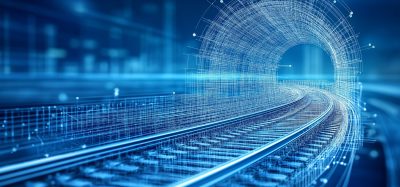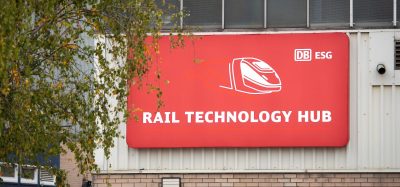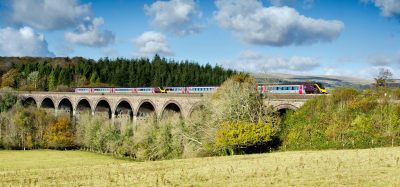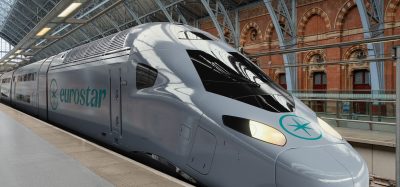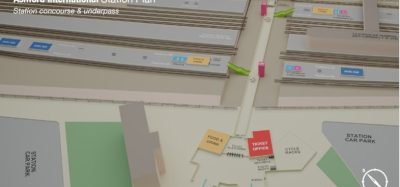Huawei: Keeping Cities Moving, Amplifying Urban Rail Intelligence
Posted: 14 May 2025 | Elizabeth Jordan - Global Railway Review | No comments yet
The Huawei Smart Urban Rail Summit, themed “Steaming Ahead with Cloud-Network Convergence and Data & AI Enablement for Smart Urban Rail”, was held in Hong Kong, China.
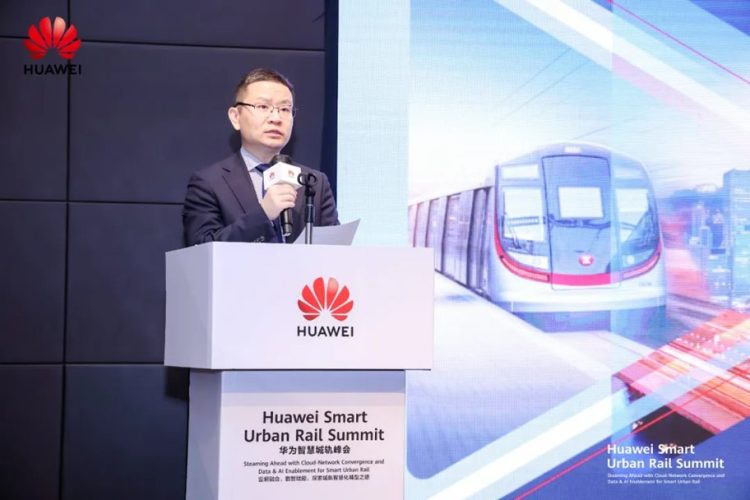

Thomas Xu, Vice President of Huawei's Smart Transportation BU and Director of the BU's Partner Development and Sales Department
This summit brought together industry leaders, business domain experts, technical professionals, and partners from the global rail sector to explore the transformation achievements made through Going Broadband, Going Cloud, and Going AI initiative, and to define paths for future evolution. During the event, they shared their experience in building smart urban rail and discussed a number of key topics such as AI technology innovation, best practices, and ecosystem development. Additionally, on-site visits to the OCC and the Data Studio of MTR Corporation Limited (MTR) were arranged.
Novel technologies like cloud computing, big data, 5G, AI, and IoT are being integrated with rail service systems increasingly quickly, ushering in a better, connected era of digital and intelligent rail transportation.
In his opening speech, Thomas Xu, Vice President of Huawei’s Smart Transportation BU and Director of the BU’s Partner Development and Sales Department, pointed out that smart urban rail construction goes far beyond device deployment. He also highlighted the importance of identifying the most suitable information, digital, and intelligent technologies for addressing specific service needs. “Huawei adheres to the ‘technology + ecosystem’ strategy. We look forward to deepening our cooperation with urban rail industry customers and partners worldwide and will continue to prioritize scenario-based innovation, joint standards development, and talent cultivation, striving to make urban rail safer, more efficient, and greener,” said Thomas.
MTR, a world leader in rail transit, consistently champions technological innovation through an ethos of openness and collaboration. Their work, which ranges from smart dispatching systems and eco-friendly technologies to digital passenger services and refined O&M management, has provided valuable insights for the global urban rail industry. Dr. Tony Lee Kar-yun, Operations and Innovation Director at MTR, delivered a speech titled “Our Past, Present and Future: Data and AI”, in which he shared the company’s journey of digital transformation over the past few decades. He believed that the integration of digital resources and innovative AI applications can enhance operational efficiency and passenger experience, and pointed out that this integration will serve as the foundation for more efficient urban transportation and more convenient community life.
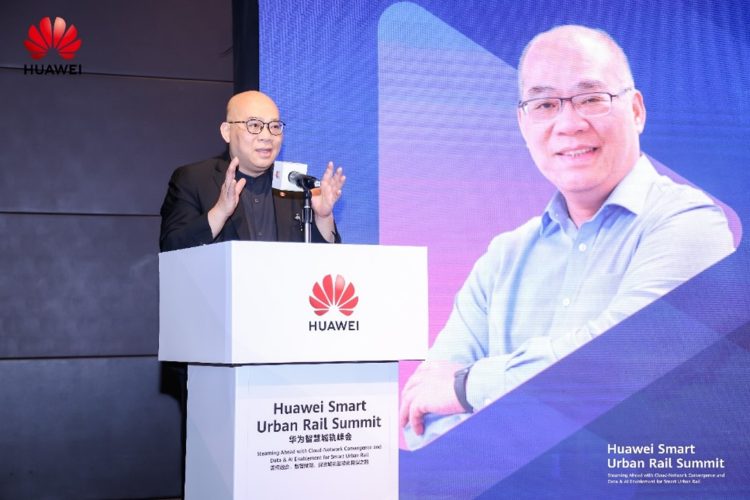

Dr. Tony Lee Kar-yun, MTR’s Operations and Innovation Director
Mr. Xi Xiaodong, Chief Engineer of Shanghai Rail Transit Maintenance Support Co., Ltd., emphasized the need for metro operators to integrate external resources and enhance internal core capabilities if they are to achieve high-quality development. External integration consolidates the operational foundation, while internal improvement optimizes resource allocation and strategic direction, thus facilitating sustainable development. Mr. Xi explained that Shanghai Metro has fully digitalized specialties for sensing the status of core facilities and equipment and redesigning service processes. They will build control towers to gain comprehensive control over status based on data, and thus step into the era of smart O&M.
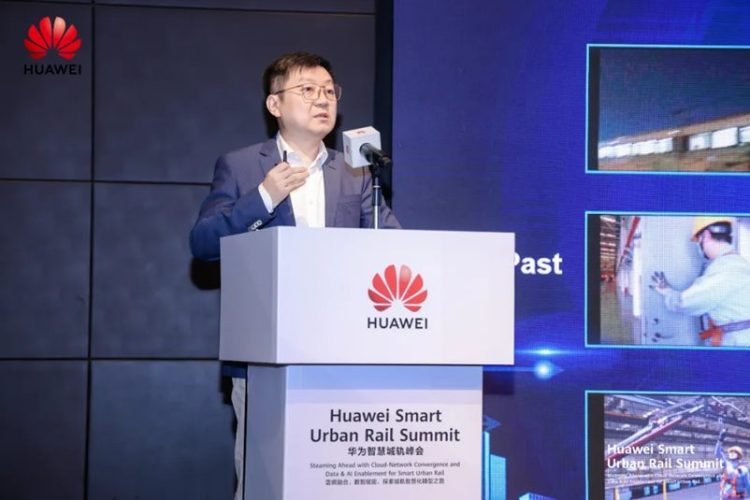

Xi Xiaodong, Chief Engineer of Shanghai Rail Transit Maintenance Support Co., Ltd.
The urban rail industry is embracing broadband, cloud, and AI technologies with open arms. Therefore, Huawei is determined to help rail operators build more secure, efficient, and intelligent rail transportation systems, with the underlying goal of continuously improving transport capacity and stimulating service innovations. Nelson Huang, Rail Business Director of Huawei’s Smart Transportation BU, interpreted the roadmap for urban rail to go cloud and AI, and stated that Huawei integrates innovative ICTs, such as the cloud, big data, 5G, AI, and IoT based on the digital and intelligent foundation for urban rail. Additionally, by pre-integrating the service capabilities of high-quality partners, Huawei innovates in various scenarios, such as smart O&M and operations. The company aims to bolster digital and intelligent transformation alongside cutting-edge development across the urban rail sector.
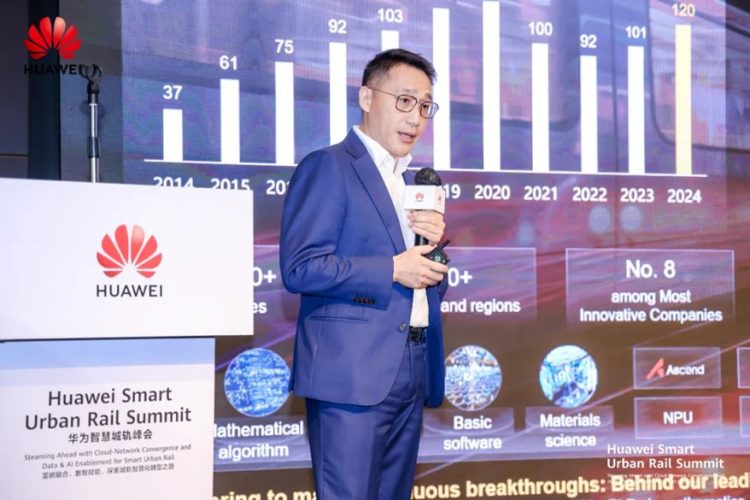

Nelson Huang, Rail Business Director of Huawei’s Smart Transportation BU
With the wide adoption of smart operations in global urban rail, the key focus of industry transformation and progress is now on improving security and efficiency, as well as innovating service models through technology reconstruction. Mr. Xiong Xinbin, Rotating CEO and Senior Vice President of Beijing Railway Institute of Mechanical & Electrical Engineering (BRI), demonstrated the institute’s intelligent inspection robot for EMUs as well as the 360° rolling stock inspection system. “BRI and Huawei have deployed Pangu models to empower rail transportation, utilized Ascend and Kunpeng to lay a solid data foundation, and integrated AI to develop a comprehensive intelligent O&M platform. Together, we are bringing new value to rail transportation,” noted Mr. Xiong.
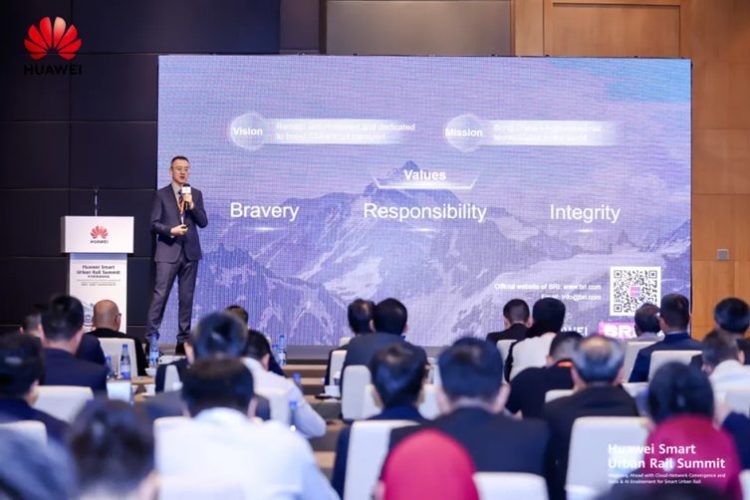

Xiong Xinbin, Rotating CEO and Senior Vice President of BRI
Huawei’s AI Solution Architect, Mr. Lv Zhihua, highlighted AI’s significant potential in real-world scenarios, citing its successful application in fields like intelligent customer service, rolling stock O&M, and smart metro O&M. The deployment of AI within industry enterprises should be promoted in both regular and high-value scenarios, starting with simple tasks and progressing to more complex ones. This approach helps enterprises develop the capacity to create large model applications and cultivate a skilled talent pool.
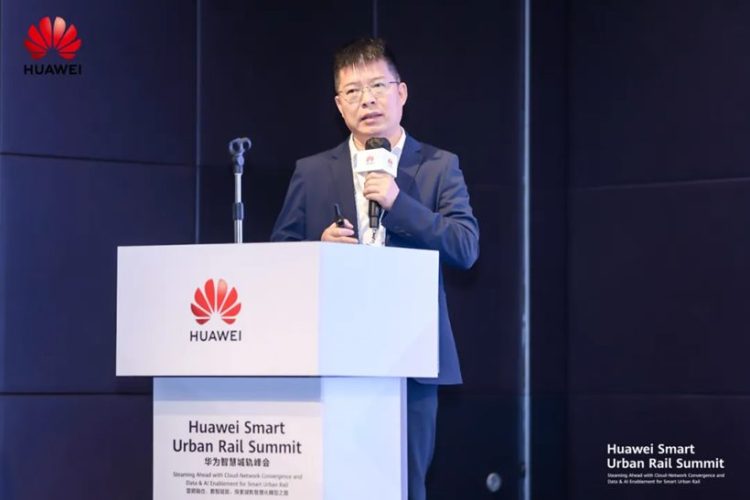

Lv Zhihua, Huawei’s AI Solution Architect
During the follow-up roundtable salon, industry luminaries from across the globe — including Mr. Ji Kun, Overseas Rail Solution Director of Huawei’s Smart Transportation BU; Datuk Dr. Mohd Yusoff Sulaiman, Chairman of the Malaysian Rail Industry Corporation (MARIC); Chan Hing-keung, Chief of Operations Engineering Service & Innovation at MTR; Mr. Xi Xiaodong, Chief Engineer of Shanghai Metro Maintenance and Support; Mr. Xiong Xinbin, Rotating CEO and Senior Vice President of BRI; and David Xu, Vice President of Huawei’s Smart Transportation BU and Director of the BU’s Solution Development I&V Dept — delved into four key areas: technology enablement scenarios, transformation pain points, data value mining, and user experience upgrade.
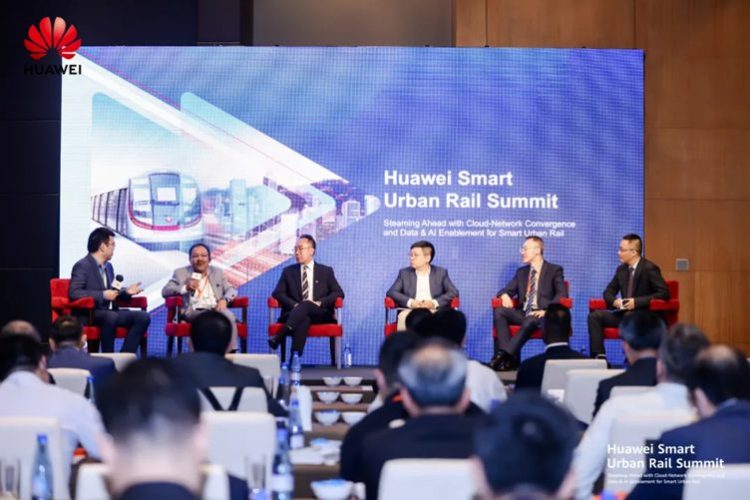

Roundtable salon (from left to right: Ji Kun, Datuk Dr. Mohd Yusoff Sulaiman, Chan Hing-keung, Xi Xiaodong, Xiong Xinbin, and David Xu)
During the event, dozens of guests had the chance to visit MTR’s OCC and Data Studio. Here, live demonstrations and real-world examples of AI systems, image analysis, and big data analysis showcased how AI can be utilized to improve urban rail O&M efficiency and quality.
Cloud-network convergence and digital and intelligent transformation are the core engines driving high-quality urban rail development on top of ongoing technological revolutions. To date, Huawei has served more than 300 urban rail lines in over 70 cities around the world. Moving forward, Huawei will deepen its cooperation with industry partners by consistently adhering to the principle of “openness, cooperation, and shared success”. The company is determined to realize convenient travel and smooth logistics, alongside digital and intelligent transportation.
OUT NOW: The Definitive Guide to Rail’s Digital Future
The rail industry is undergoing a digital revolution, and you need to be ready. We have released our latest market report, “Track Insight: Digitalisation.”
This is not just another report; it’s your comprehensive guide to understanding and leveraging the profound technological shifts reshaping our industry. We move beyond the buzzwords to show you the tangible realities of AI, IoT, and advanced data analytics in rail.
Discover how to:
- Optimise operations and maintenance with real-time insights.
- Enhance passenger services through seamless, high-speed connectivity.
- Leverage technologies like LEO satellites to improve safety and efficiency.
Featuring expert analysis from leaders at Nomad Digital, Lucchini RS, Bentley Systems and more, this is a must-read for any rail professional.
Related topics
5G, Artificial Intelligence (AI), Big Data, Conferences & Events, Digitalisation, European Rail Traffic Management System (ERTMS), Future Railway Mobile Communications System (FRMCS), Internet of Things (IoT), Operational Performance
Related organisations
Related people
Chan Hing-keung, Datuk Dr. Mohd Yusoff Sulaiman, David Xu, Ji Kun, Lv Zhihua, Nelson Huang, Tony Lee Kar-yun, Xi Xiaodong, Xiong Xinbin



